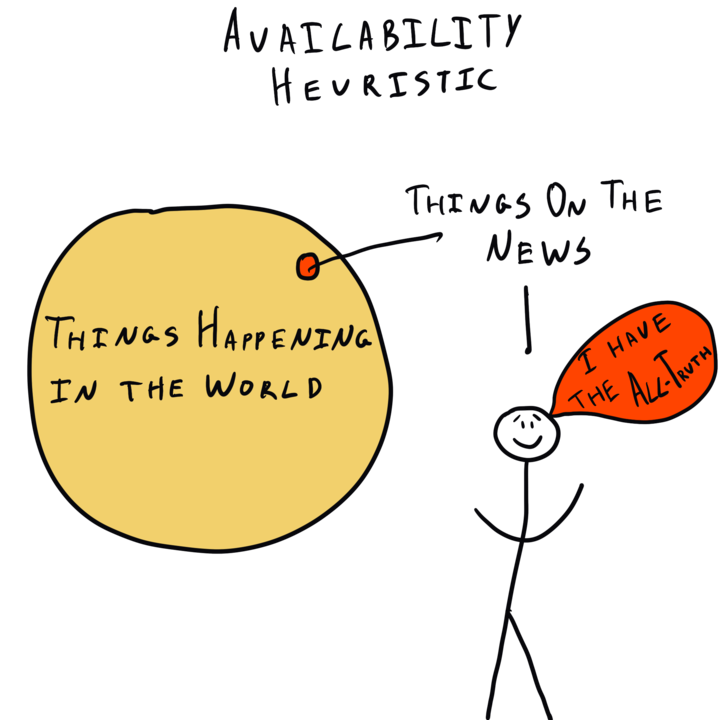One of my most enlightening a-ha’s from when I was still a teacher was the concept of normalizing error. It was popularized in Teach Like a Champion as a strategy for building a classroom culture that capitalized on mistakes as teachable moments, instead of evaluative and definitive of student ability. Complementary to it is the constant push to make thinking visible, be open to feedback, and highlight process over product.
In practice, it meant “spending less time discussing errors and more time supporting students to look for ways to correct the issues.” It also meant reducing the amount of praise I gave to correct answers, and actively using mistakes as jump-off points for learning.
As I transitioned to work with adults, the favored conditions remain the same. Inquiry and innovation are still more likely to happen in spaces where individuals have an allowance to fall short or try things without the promise of success. It requires explicit work to build that culture, so it’s no surprise that we end up with the opposite in places where norms are either built organically, or don’t exist at all. Like the internet.
The Decline of Neutrality
Whether or not you consider social media engagement as a spectator sport, it is common knowledge that the mob response to being wrong is to get ratioed and/or canceled. There’s a lot to unpack about the speed and intensity of these public condemnations. Speaking truth to power using online platforms has been a game-changer for individuals and their causes alike, and with it comes s̶h̶a̶m̶i̶n̶g̶ exposure that seeks to put important, complex topics front of mind.
In the world of normalized error, a teacher occupies a space of neutrality and the best advice is “to make sure that praise and correction are normal and that neither is a big deal.” But if certain contexts are designed to be a safe space for some and not for others, it is warranted to shun neutrality and support the rejection of the status quo. Neutrality in civic and cultural discourse is now frowned upon, if not utterly impossible.
But less is known about where the called-out people go when they’re no longer the subject of ridicule. Is there a #canceledpersonalities purgatory where they wait for things to cool down before bouncing back, or do they just go straight to Twitter hell and publicly atone for their sins?
For better or for worse, I am inclined to leave the mob alone: because a) the stakes for me are low, and b) the stakes for the movements I support are high.
The stakes are low when what’s in front of us keeps changing anyway. It is by design that we ended up with an accountability system that mirrors how quickly we receive information.
The Availability Heuristic, or how canceling is just a mental shortcut we developed to immediately (speed) and “adequately” (intensity) respond to the norms we care about.
The stakes are high when I think about online communities as treatment groups for how we will hold each other accountable now and in the future. It seems silly to reduce moral consensus to a reply-like-RT comparison that is impossible to keep track of. Not to mention by being in one platform and not another, we are missing out by default on whatever consensus is being built elsewhere.
Increased Participation, Increased Liability
Beneath the well-meaning core of cancel culture is the righteous joy in “spending more time discussing errors” and “less time supporting people to look for ways to correct the issue.” In his article Everyone is Canceled, Jonah Bromwich concluded that “the canceled can be uncanceled — if they’re willing to do the work. Or hire a good publicist.” But what about us? If the burden to educate themselves is on them, what’s the responsibility of the collective here? Below are some questions I ask myself:
Where do I *really* stand? Our primal instincts compel us to do things out of reciprocity, but also to signal status. I want to act in a way that doesn’t condone problematic behavior, but not to the extent that my emotional cues drive me to feel responsible for the character-building of others.
How likely is this to change? The information available in front of me is distilled at best and unreliable at worst. In dealing with the digital personas of people, there’s arrogance in believing that what we know now is all that we will ever know. Process over product means an artifact is out there because it is open to change and be questioned, but with as little harm inflicted on it as possible.
What happens when it’s no longer convenient? We low-key enjoy telling others how to live their life until it touches the things we love. Convenience is my litmus test for the day I’d have to really put my money where my mouth is, and I know it will come.
Despite its dynamic form, cancel culture and virtue signaling aren’t doing anything ambitious; its attention will never be sustained long enough to police the entire internet. But it can shape conversations around what we are doing—and not doing—to our policies, institutions, and everyday interactions.
To that end, anything that serves as an impetus for denormalizing the error of our ways might just be… justified.
More Expansive Takes:
…or, just for fun, here are Karens and Influencers going wild. I support canceling them.



